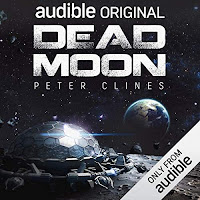Look! Bonus content! It’s what the internet screams for!
Last weekend I was in Dallas talking to folks about NaNoWriMo. Overall I think it went pretty well. People laughed and chuckled in all the places I hoped they would.
However… there is strong evidence that I may have had waaaaaaaay too much caffeine before giving said talk. Combine that with a very echoey big room and, well, some of my brilliant observations about writing were lost. And most of my awkward jokes, too. So it’s a pros and cons situation.
Anyway, since I’ve been asked about a few things that got lost in my speed-echoes, I thought I could tweak part of the speech and post it here for everyone. It’s helpful for NaNoWriMo, but it’s some good overall stuff to keep in mind, too. Plus, this way I can add in a ton of links to help explain things even further.
What I’ve got below are eleven questions for you to think about when you’re sitting down with your story. Depending on your particular plot/story/genre/cast of characters, there’s a chance one or two of these might not work for you. But a lot of them should. In fact, I’d say if a lot of these don’t apply to the story I’m trying to tell, I’m probably missing something important.
1) Who’s my main character—or characters, depending? Man, woman, non-binary, young, old, straight, gay, werewolf, vampire, bionic space Pope, who are they?
2) What’s a normal day for them? What would they be doing today if they weren’t falling in love or saving us from vampire kaiju? What’s their day job?
3) What happens to make this not a normal day? What changes in their life? Why are we writing a story about this day & not a day last week or next month? Fancy folks call this the inciting incident or introducing conflict. I just like to say… why is this not a normal day?
4) What are they trying to do? Really simply, what’s my book about? This is their goal.
5) Why are they trying to do it? Fancy people call this “their motivation.” Kidnapped friend? Revenge? The greater good? Nanite bomb implanted in their groin? Why aren’t they just saying screw this and going back to their normal life?
6) How are they trying to do it? What actions are they taking? Do they have a plan? Are they making it up as they go along? We want our characters to do something.
7) What’s stopping them from getting it done right now? Is their goal far away? Under guard? Super expensive? Only dates cheerleaders?
8) Do I have an antagonist? Somebody openly trying to stop my hero, for major or minor reasons. My antagonist doesn’t need to be a villain, but they’re definitely somebody with opposing views.
9) What does my antagonist want? This is another character, so we want to develop them. They’re going to have goals, too, even if it’s just “kill all those kids out at the summer camp” or “stomp across Vatican City once the sun goes down.”
10) Why do they want it? My antagonist needs to have motives, too. So just like with my hero–why are they doing this?
11) Finally, what happens when my hero achieves their goal? Are there parades? Explosions? Bloody vengeance? Long passionate kisses? What happens if everything works out right? And on the flipside, what’s going to happen if they don’t achieve their goal?
Now, again, these aren’t end-all be-all questions. There’s a good chance 1 or 2 of them might not apply to the story you’re telling. But the answers to most of these questions should exist, even if I’m never going to specifically spell them out in my story.
Y’see, Timmy, if I can answer all of these… look at what I’ve got. It means I’ve got characters. I’ve got an established norm. I’ve got an inciting incident. I’ve got goals and motivations and obstacles. And these are the kind of things that form the bare bones of an outline. They should spell out a basic plot and story. If I can answer these, I know I’ve got an actual story.
And if I can’t… well… odds are I’ve got some more work to do.
Hey, speaking of bonus posts, I wanted to toss out something else seasonal on Monday or Tuesday. And then back to our usually scheduled rants on Thursday.
Until then, get back to writing! Go on… write!









